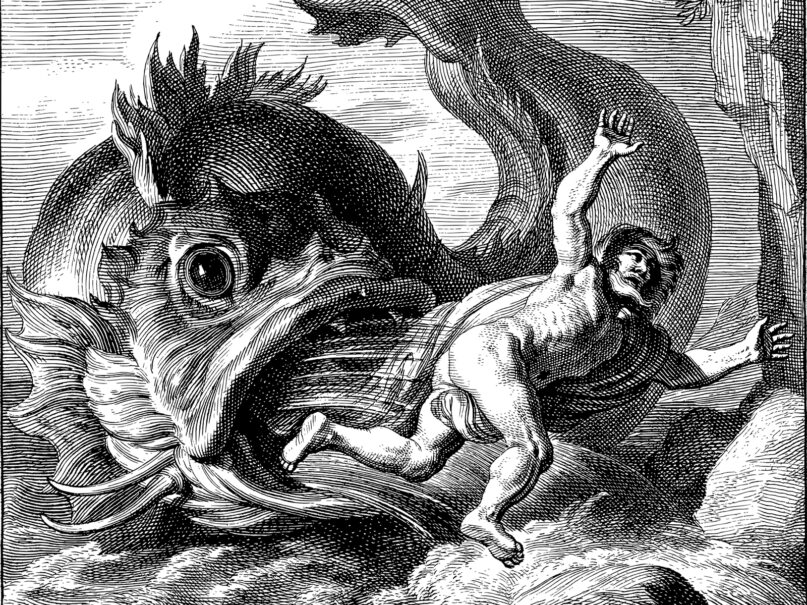(RNS) — Yom Kippur, the Day of Atonement, took place last Thursday, giving us Jews our annual opportunity to think about the prophet Jonah, whose book the rabbis assign us to read as the 25-hour fast is drawing to a close.
In a world where rage, feelings of victimization and a refusal to admit mistakes has become the dominant leadership style, Jonah serves as an excellent role model.
He comes fifth in the sequence of the 12 minor prophets in the Hebrew Bible but stands apart from the rest of them. Uniquely, he does not preach to his own people and in fact is the only Jew who appears in the entire story.
His is the tale of a Hebrew prophet who engages with Gentiles, all of whom end up behaving well. It has the aspect of a parable, a piece of wisdom literature like the Book of Job. If Job is about why bad things happen to good people, Jonah is about how good things come about through bad people.
The bad person being Jonah.
The book begins with God giving him instructions to go to the great Assyrian city of Nineveh. He is to proclaim against it because its wickedness has come to God’s attention.
Jonah immediately takes off in the opposite direction, boarding a ship in order to escape the divine presence. But God stirs up a giant storm and, after fruitlessly tossing their cargo overboard, the sailors determine by lot that Jonah is the cause of their imminent destruction. He admits he’s a Hebrew on the lam from his God and tells them to toss him overboard, which they reluctantly do. The storm immediately stops.
The happy result is that the sailors end up devoted to the God of the Hebrews. As for Jonah, he is famously swallowed by a giant fish that God has sent for that purpose.
From the belly of the fish follows an extended prayer, in which Jonah complains at length about his dire situation, noting that it was God who cast him into the sea and claiming, as if it’s already happened, that God has heard his prayer and rescued him. He says he’ll go to the temple in Jerusalem to sacrifice and give thanks.
Does he repent of disobeying God’s command? He does not.
God then has the fish vomit Jonah up and again orders him to go to Nineveh, which he now does. He proclaims that in 40 days the city will be overturned, using the same verb used to describe what happened to Sodom and Gomorrah. Amazingly enough, the Ninevites hearken to him, putting sackcloth on themselves and their animals, fasting and repenting of their evil ways; and God decides not to destroy them.
Jonah, however, is not happy. As the Hebrew literally puts it, “And it was evil to Jonah a great evil and it burned to him.”
Far from admitting that God was right to send him to Nineveh, the prophet proceeds to justify his original act of disobedience by dismissing God as a snowflake. He fled, he says, “for I knew that you are a gracious God, and compassionate, long-suffering, and abundant in mercy, and repent of doing harm.”
Whereupon Jonah is given an object lesson. As he watches to see what will happen to the city, God provides a plant to give him shade from the beating sun, then has a worm destroy the plant and sends a harsh east wind to deepen his misery and further enrage him.
After pointing out that Jonah has pity on a plant that he did nothing to create (as if Jonah’s pity was not actually for his own loss of shade), in the book’s final sentence, God asks, “And should not I have pity on Nineveh, that great city, where there are more than 120,000 people who can’t tell their right hand from their left, and also many cattle?”
We answer the question in the affirmative, but there’s no reason to suppose that Jonah does. Throughout the book he expresses concern only for his own well-being, displaying a severe anger management problem and an incapacity to admit error so great that he blames his misbehavior on God’s mercy.
The book’s hopeful lesson is that God manages to make good things happen via this wrathful, self-exculpatory narcissist. Next year we’ll consider what the great storm and the east wind, which he causes God to create, have to teach us about anthropogenic climate change. See you then, Jonah.






